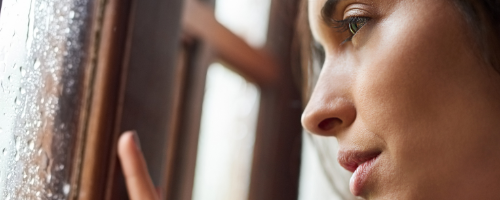Do you find yourself feeling increasingly low as the days get shorter? Perhaps you've noticed a pattern where your mood dips during the autumn and winter months, leaving you feeling tired, unmotivated, or struggling to enjoy activities you normally love? As a counsellor working with people online and from my practice in West London, Oxford and Cheltenham, I've seen how Seasonal Affective Disorder can significantly impact people's lives, yet many don't realise what they're experiencing has a name and, more importantly, that help is available.
Understanding SAD
Seasonal Affective Disorder, often called SAD, is a type of depression that follows a seasonal pattern, typically occurring during the autumn and winter months when daylight hours are shorter. It's more than just "winter blues" - it's a recognised form of depression that can significantly affect your daily life, relationships, and overall wellbeing.
Common Signs and Symptoms
You might be experiencing SAD if you notice persistent low mood during winter months, increased fatigue and need for sleep, difficulty concentrating or making decisions, or loss of interest in activities you usually enjoy. Many people also experience changes in appetite, particularly craving carbohydrates, weight gain, and feelings of hopelessness or worthlessness. Social withdrawal is common too, as you might find yourself wanting to "hibernate" and avoid social interactions.
Why Does SAD Happen?
While the exact causes aren't fully understood, SAD is thought to be linked to reduced exposure to sunlight during shorter autumn and winter days. This can affect your body's internal clock, reduce serotonin levels (a mood-regulating chemical), and disrupt melatonin production, which affects sleep patterns and mood.
Coping Strategies
There are several approaches that can help manage SAD. Light therapy, using a special lamp that mimics natural sunlight, has proven effective for many people. Maximising natural light exposure by spending time outdoors during daylight hours, even on cloudy days, can make a difference. Maintaining regular routines for sleep, meals, and exercise helps stabilise your mood. Physical activity, particularly outdoors, can boost serotonin levels and improve overall wellbeing.
When to Seek Support
If you're finding that SAD is significantly impacting your daily life, relationships, or ability to function, it's important to seek professional help. Remember, SAD is a real condition that deserves proper attention and care. You're not being weak or overreacting.
If you're struggling with seasonal mood changes and would like support, I invite you to reach out to Hope and Harmony. Together, we can work through these challenges, develop coping strategies tailored to your needs, and help you find ways to manage your wellbeing throughout the changing seasons. You don't have to face the darker months alone.


